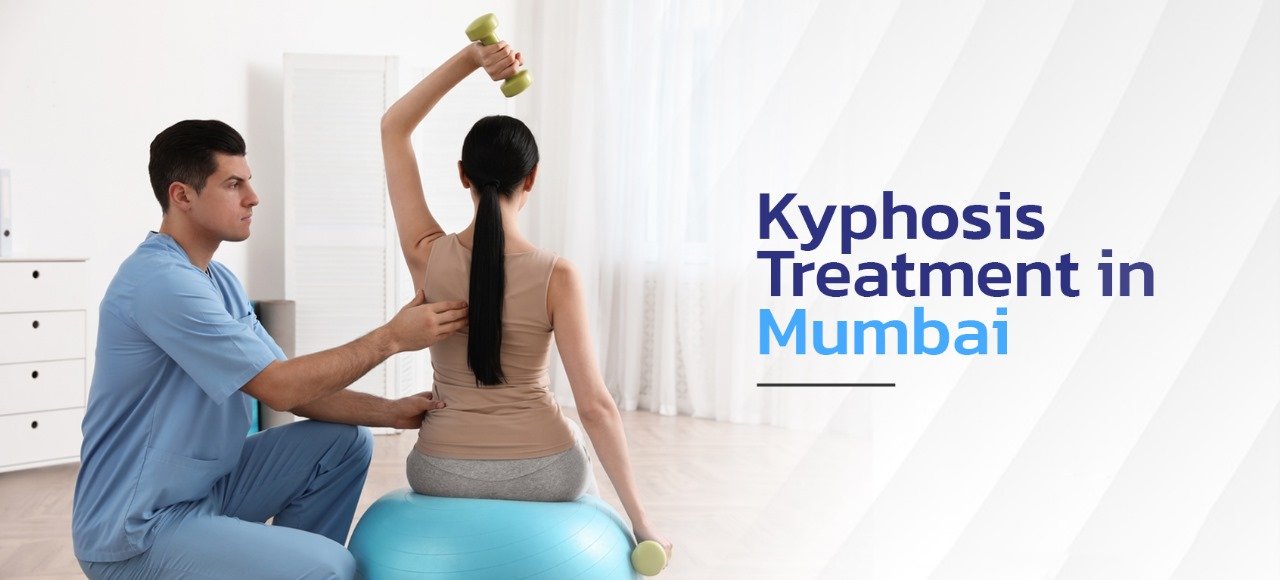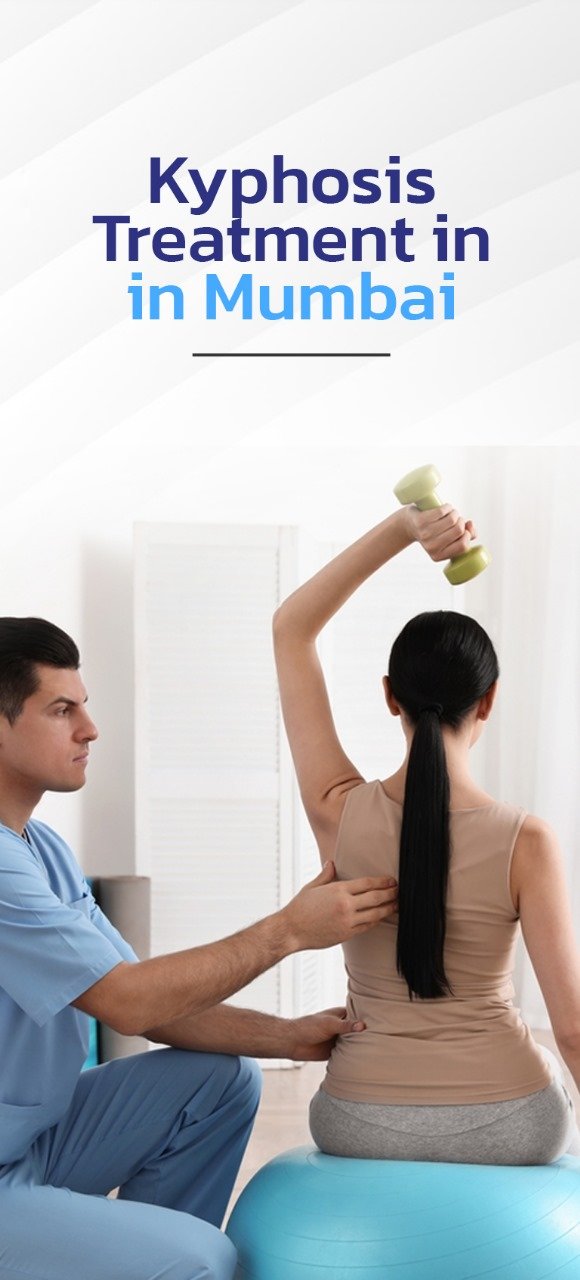

Choosing the right surgeon is super important for your spine health. Thane, a big city with great healthcare, has lots of options for spine surgeons. This guide will help you find the best spine surgeon in Thane to make sure your spine gets the best care.
Explore advanced kyphosis treatment in Mumbai with top specialists
Welcome to our comprehensive guide on kyphosis and its expert treatment options in Mumbai. Kyphosis, a spinal disorder causing a forward curvature, requires specialized care. In the bustling city of Mumbai, our dedicated professionals offer cutting-edge kyphosis treatments, ensuring personalized and effective solutions for a healthier spine. Explore the path to a straighter, pain-free life with kyphosis treatment in Mumbai.

Looking for Kyphosis treatment in Mumbai? Consult Dr Priyank Patel,
Dr. Priyank M. Patel is a respected spine specialist Doctor in Mumbai, known for his expertise in treating various spine issues, including kyphosis. He became one of the youngest independent surgical consultants in Mumbai, and his training includes international exposure to advanced spinal procedures. Dr. Patel excels in surgeries like minimally invasive spinal surgery and artificial disc replacement.
Apart from his surgical skills, Dr. Patel is recognized as the best kyphosis specialist doctor in Mumbai. Kyphosis is a condition where the spine curves forward, and Dr. Patel is adept at addressing it through surgery or non-surgical methods. He emphasizes an active lifestyle, incorporating exercises and coaching for strength and conditioning.
Dr. Patel’s influence extends beyond treating individuals; he has successfully helped athletes from the Indian National Cricket Team and the film industry overcome spinal injuries. He is internationally recognized and invited to speak at global meetings on spine-related issues. Dr. Patel is also involved in philanthropy through The Spine Foundation, contributing to rural spine care and nurturing new surgeons. His future vision includes establishing a National Spine Tumor Foundation to address spinal tumor cases. Dr. Priyank M. Patel’s dedication and expertise make him the top choice for those seeking the best kyphosis specialist Doctor in Mumbai.
What is kyphosis?
Kyphosis is a spinal condition characterized by an abnormal rounding of the upper back. In individuals with kyphosis, the spine may appear more rounded or hunched than normal. This curvature can be caused by various factors, such as poor posture, degenerative diseases, or congenital issues. Mild cases may not cause significant problems, but more severe forms can lead to pain, stiffness, and potential complications with the spinal cord or nerves. Treatment options range from exercises and physical therapy to more advanced measures, including braces or surgery, depending on the severity and underlying cause of the condition.
Types of kyphosis
Kyphosis is a spinal condition characterized by an abnormal rounding of the upper back. It can manifest in several types, each with distinct characteristics.
Postural kyphosis
Postural kyphosis is often seen in adolescents and can be corrected with improved posture and strengthening exercises. Proper posture is crucial to preventing and managing this type of kyphosis.
Scheuermann's Kyphosis
Scheuermann’s kyphosis typically develops during adolescence and is characterized by the rounding of the upper back due to irregular growth of the vertebrae. Individuals with this type may experience stiffness and discomfort. Non-surgical treatments, including physical therapy and exercises, are often recommended.
Congenital kyphosis
Congenital kyphosis is present at birth and results from abnormal spinal development in the womb. The severity of this type varies, and treatment depends on the extent of the deformity. Surgical intervention may be considered in more severe cases.
Degenerative Kyphosis
Degenerative kyphosis is associated with aging and the wear and tear of spinal discs. It can lead to a forward curvature and is often linked to conditions like osteoporosis. Conservative treatments, such as medications and physical therapy, are commonly employed to manage symptoms.
Post-traumatic kyphosis
Post-traumatic kyphosis develops after a spinal injury or trauma, such as fractures or dislocations. The spine may form a curvature during the healing process. Treatment options depend on the severity of the injury and may include surgery in certain cases.
Nutritional Kyphosis
Nutritional kyphosis is rare and is associated with nutritional deficiencies affecting bone development. Adequate nutrition is essential for preventing and addressing this type of kyphosis.
For those seeking kyphosis treatment in Mumbai, it’s crucial to consult with a qualified specialist. In some cases, surgical intervention may be recommended, and options such as kyphosis surgery in Mumbai or kyphosis spine surgery in Mumbai may be explored. Dr. Priyank M. Patel, a renowned spine specialist and surgeon in Mumbai, offers expertise in treating various spine disorders, including kyphosis.
As a leading kyphosis surgeon in Mumbai, Dr. Patel emphasizes a comprehensive approach to spine care. For those considering surgical options, information about kyphosis surgery cost in Mumbai or kyphosis surgery price in Mumbai can be discussed during a consultation. Each patient’s case is unique, and treatment plans are tailored to individual needs, considering both non-surgical and surgical options for optimal spine health.
Symptoms and causes of kyphosis
Symptoms of kyphosis include visible rounding of the upper back, back pain, stiffness, fatigue, tight hamstrings, and nerve compression. Causes range from poor posture and Scheuermann’s disease to congenital anomalies and spinal injuries.
Symptoms
- Visible rounding of the upper back: One of the most noticeable symptoms of kyphosis is a forward curvature of the upper spine, leading to a visibly hunched or rounded appearance. This may become more pronounced over time.
- Back pain: Individuals with kyphosis may experience pain or discomfort in the affected area of the spine. This pain can range from mild to severe and may be exacerbated by certain activities or prolonged periods of sitting or standing.
- Stiffness: The abnormal curvature of the spine in kyphosis can result in stiffness, limiting the range of motion in the upper back. This can contribute to discomfort and difficulty in performing certain movements.
- Fatigue: Maintaining an upright posture may require increased effort for individuals with kyphosis. This extra strain can lead to fatigue, especially after extended periods of sitting or standing.
- Tight hamstrings: In some cases, the abnormal spinal curvature in kyphosis can affect the hamstrings, causing them to tighten. This tightness can impact leg flexibility and contribute to discomfort.
- Nerve compression: Severe kyphosis may lead to the compression of nerves in the spine. This can result in symptoms such as numbness, tingling, or weakness in the extremities.
Causes
- Poor posture: Persistent slouching or maintaining poor posture, especially during adolescence, can contribute to postural kyphosis. This type is often correctable with improved posture.
- Scheuermann’s disease: This condition involves abnormal growth of the vertebrae during adolescence, leading to Scheuermann’s kyphosis. It can result in a more rigid curvature and may cause discomfort.
- Congenital anomalies: Kyphosis can be present at birth due to congenital anomalies affecting spinal development in the womb. The severity varies, and treatment depends on the extent of the deformity.
- Degenerative conditions: Aging and degenerative conditions, such as arthritis or osteoporosis, can contribute to degenerative kyphosis. This type is often associated with the breakdown of spinal discs and vertebral compression fractures.
- Spinal injuries: Traumatic events, such as fractures or dislocations, can cause post-traumatic kyphosis. The spine may develop a curvature during the healing process after such injuries.
- Neuromuscular conditions: Diseases affecting the muscles or nerves, such as cerebral palsy or muscular dystrophy, can contribute to neuromuscular kyphosis. These conditions impact muscle tone and can affect spinal alignment.
Understanding the symptoms and causes is crucial for an accurate diagnosis and the development of an appropriate treatment plan. Individuals experiencing symptoms of kyphosis should seek consultation with a qualified healthcare professional, particularly a spine specialist, for a thorough evaluation and personalized care.
Risk Factors for Kyphosis
Risk factors for kyphosis include aging, with degenerative changes; a higher risk in females; osteoporosis leading to vertebral fractures; poor posture; spinal injuries; and a potential genetic predisposition in certain families.
- Age: Degenerative kyphosis is more common with aging as spinal discs wear down, increasing the risk of curvature.
- Gender: Females are at a higher risk, especially for postmenopausal osteoporotic kyphosis.
- Osteoporosis: Weakened bones from osteoporosis elevate the risk of vertebral compression fractures and kyphosis.
- Poor posture: Prolonged poor posture, especially during growth years, contributes to postural kyphosis.
- Spinal injuries: Trauma, fractures, or dislocations can increase the likelihood of post-traumatic kyphosis.
- Genetics: Congenital kyphosis may have a genetic component, increasing the risk in families with a history of spine abnormalities.

Kyphosis Diagnosis
Kyphosis diagnosis involves a thorough assessment conducted by healthcare professionals to determine the nature and extent of the spinal curvature. The following key steps are typically part of the diagnostic process-
- Physical Examination: Healthcare providers perform a detailed physical examination to observe the curvature of the spine, assess posture, and evaluate the range of motion. This initial assessment helps in identifying potential signs of kyphosis.
- Imaging Tests: Imaging studies such as X-rays, MRIs, or CT scans are crucial for obtaining detailed images of the spine. These diagnostic tools help in assessing the severity of the kyphosis and identifying any underlying causes, such as vertebral abnormalities or compression fractures.
- Neurological Examination: If nerve compression is suspected, a neurological examination may be conducted. This involves checking reflexes, muscle strength, and other neurological functions to evaluate the impact of kyphosis on nerve health.
- Medical History: Gathering a comprehensive medical history is essential for understanding the context of kyphosis. Information about the onset of symptoms, family history of spine disorders, and any contributing factors aids in making an accurate diagnosis.
- Bone Density Testing: In cases where osteoporosis-related kyphosis is a concern, bone density testing may be recommended. This is particularly relevant for postmenopausal women, helping to assess the risk of vertebral fractures associated with decreased bone density.
- Postural Assessment: A detailed assessment of posture is conducted to identify any asymmetry or abnormalities contributing to postural kyphosis. This is especially important in cases where poor posture is a significant factor.
Once a thorough diagnosis is established, healthcare professionals can tailor a treatment plan to the specific type and severity of kyphosis. For those seeking treatment options in Mumbai, specialized interventions such as kyphosis treatment in Mumbai and kyphosis surgery in Mumbai can be explored. Dr. Priyank M. Patel, a renowned spine specialist in Mumbai, offers expertise in both non-surgical and surgical management of kyphosis, ensuring personalized care for optimal spine health.
Kyphosis Treatment
Addressing kyphosis involves a tailored approach based on the type, severity, and underlying factors contributing to the spinal curvature. Here’s a detailed overview of common treatment strategies:
- Observation: In mild cases, especially with postural kyphosis, a conservative approach involving observation and regular monitoring may suffice. Incorporating lifestyle changes and posture-improvement exercises may be recommended.
- Physical Therapy: Targeted exercises and physical therapy play a crucial role in kyphosis treatment. These interventions aim to strengthen the muscles supporting the spine, enhance flexibility, and correct posture. This approach is particularly effective for postural and mild structural kyphosis.
- Bracing: Adolescents with Scheuermann’s kyphosis may benefit from bracing to slow down the progression of the curvature during growth. The type and duration of bracing are determined based on the individual’s specific case.
- Pain Management: Medications, such as nonsteroidal anti-inflammatory drugs (NSAIDs) or pain relievers, may be prescribed to manage pain associated with kyphosis. It’s essential to consult with a healthcare professional for proper guidance.
- Kyphosis Surgery: Surgical intervention becomes a consideration for severe cases or those unresponsive to conservative measures. Kyphosis spine surgery aims to correct the curvature, stabilize the spine, and relieve pressure on nerves if necessary. This approach is often personalized to the individual’s condition.
For those seeking specialized care in Mumbai, options such as kyphosis spine surgery in Mumbai and consulting with a dedicated kyphosis surgeon in Mumbai are available. Dr. Priyank M. Patel, a distinguished spine specialist in Mumbai, offers comprehensive evaluations and personalized treatment plans for individuals dealing with kyphosis. Decisions regarding treatment, including surgery, are made collaboratively, taking into account the unique aspects of each case to ensure optimal outcomes in spine health.
Kyphosis Prevention
Kyphosis prevention involves adopting proactive measures to promote spine health and minimize the risk of developing abnormal spinal curvature. Here’s a comprehensive overview of key preventive strategies-
- Maintain Good Posture: Cultivating habits of maintaining proper posture is fundamental to preventing kyphosis. Regularly check and adjust your sitting and standing posture to avoid unnecessary strain on the spine.
- Regular Exercise: Engage in exercises that specifically target core muscles and enhance spine flexibility. Incorporating activities like yoga, Pilates, and regular strength training can contribute to overall spine health.
- Balanced Nutrition: Ensure a well-rounded diet rich in calcium and vitamin D, essential for supporting bone health. Adequate nutrition is crucial in preventing conditions like osteoporosis, a contributing factor to kyphosis.
- Avoid Prolonged Sitting: Take breaks and avoid prolonged periods of sitting. Incorporate regular movements and stretches into your daily routine to alleviate pressure on the spine.
- Ergonomic Practices: Create a spine-friendly environment by using ergonomic furniture and tools, especially for individuals with desk-bound jobs. This can significantly contribute to preventing postural kyphosis.
- Regular health check-ups: Schedule regular health check-ups to identify and address early signs of spine-related issues. Timely intervention can prevent the progression of kyphosis, particularly in cases with underlying conditions.
- Bone Health Maintenance: Pay attention to bone health, particularly in postmenopausal women. Regular bone density screenings and appropriate interventions can reduce the risk of kyphosis associated with weakened bones.
- Educational Awareness: Promote awareness about the importance of spine health and preventive measures. Educational programs can empower individuals to take proactive steps in their daily lives.
For individuals considering preventive measures or seeking treatment options in Mumbai, specialized interventions such as kyphosis treatment are available. In cases where surgical intervention is necessary, understanding the associated costs is crucial. Consultation with a qualified specialist like Dr. Priyank M. Patel can provide insights into aspects like kyphosis surgery cost in Mumbai and kyphosis surgery price in Mumbai. Taking proactive steps toward spine health can significantly contribute to a reduced risk of kyphosis and related complications.
Why kyphosis treatment in Mumbai ?
Mumbai stands out as a prime destination for kyphosis treatment, offering a combination of advanced healthcare features that make it an optimal choice for individuals seeking effective spine care.
- Advance Technology: The city’s medical landscape is characterized by the incorporation of cutting-edge technology. Advanced diagnostic tools and surgical procedures ensure precise and effective kyphosis treatment in Mumbai.
- Advance Infrastructure: Mumbai boasts a robust medical infrastructure, featuring modern hospitals and clinics equipped with state-of-the-art facilities. This infrastructure provides a conducive environment for comprehensive kyphosis diagnosis and treatment.
- Top Experienced Doctors: Renowned spine specialists in Mumbai, such as Dr. Priyank M. Patel, bring a wealth of experience to the table. Their expertise ensures that patients receive high-quality, personalized care throughout their kyphosis treatment journey.
- Easily Available Medical Resources: Mumbai offers seamless access to a range of medical resources, including medications, surgical equipment, and rehabilitation facilities. This ready availability enhances the efficiency of kyphosis management, ensuring a timely and well-supported treatment process.
For those considering kyphosis treatment in Mumbai, the convergence of advanced technology, robust infrastructure, experienced medical professionals, and easy access to essential resources makes it a compelling choice. Whether exploring non-surgical options or considering kyphosis surgery in Mumbai, patients can expect comprehensive and effective care in the city’s thriving healthcare ecosystem.
In conclusion, Mumbai stands out as a premier destination for individuals seeking effective kyphosis treatment, including kyphosis treatment in Mumbai and kyphosis surgery in Mumbai. The city’s healthcare landscape, enriched with advanced technology and a robust infrastructure, aligns seamlessly with the expertise of renowned specialists like Dr. Priyank M. Patel. This synergy ensures a comprehensive approach to kyphosis care, including kyphosis spine surgery in Mumbai, led by experienced professionals. With easy access to medical resources, Mumbai caters to diverse needs, emphasizing personalized care for optimal outcomes. Whether considering non-surgical options or exploring kyphosis surgery cost in Mumbai and kyphosis surgery price in Mumbai, patients can confidently embark on a journey towards a healthier spine and an enhanced quality of life. Trust in Mumbai’s healthcare excellence for a straighter, pain-free future.
Frequently Asked Questions
Kyphosis is a spinal condition characterized by an abnormal rounding of the upper back, resulting in a hunched or rounded appearance. It can be caused by various factors, including poor posture, degenerative diseases, congenital issues, or spinal injuries.
Kyphosis treatment in Mumbai encompasses a range of options, from non-surgical approaches like physical therapy and bracing to surgical interventions. Renowned specialists, including Dr. Priyank M. Patel, offer personalized care, considering factors such as the type and severity of kyphosis.
No, surgery is not the only option. Treatment plans are tailored based on the individual case. Non-surgical methods, including observation, physical therapy, and bracing, are explored first. Surgery is considered for severe cases or when conservative measures prove ineffective.
The cost of kyphosis surgery in Mumbai can vary based on factors like the type of surgery and hospital facilities. It’s recommended to consult with specialists like Dr. Priyank M. Patel to discuss personalized treatment plans and associated costs.
Kyphosis can manifest in various types, including postural kyphosis (correctable with improved posture), Scheuermann’s kyphosis (develops during adolescence), congenital kyphosis (present at birth), degenerative kyphosis (associated with aging), post-traumatic kyphosis (develops after spinal injury), and nutritional kyphosis (linked to nutritional deficiencies).
Mumbai offers advanced technology, a robust healthcare infrastructure, top-experienced doctors like Dr. Priyank M. Patel, and easy availability of medical resources. This combination ensures effective and personalized kyphosis treatment, making Mumbai a preferred destination.
Kyphosis prevention involves maintaining good posture, engaging in regular exercise, ensuring balanced nutrition, avoiding prolonged sitting, implementing ergonomic practices, scheduling regular health check-ups, and focusing on bone health maintenance.
Yes, degenerative kyphosis associated with aging is relatively common. It results from wear and tear on spinal discs, leading to an increased risk of curvature. Regular check-ups and a healthy lifestyle can help manage and prevent kyphosis in older adults.
Certain types of kyphosis, like congenital kyphosis, may have a genetic component, increasing the risk in families with a history of spine abnormalities. However, not all forms of kyphosis are hereditary.

